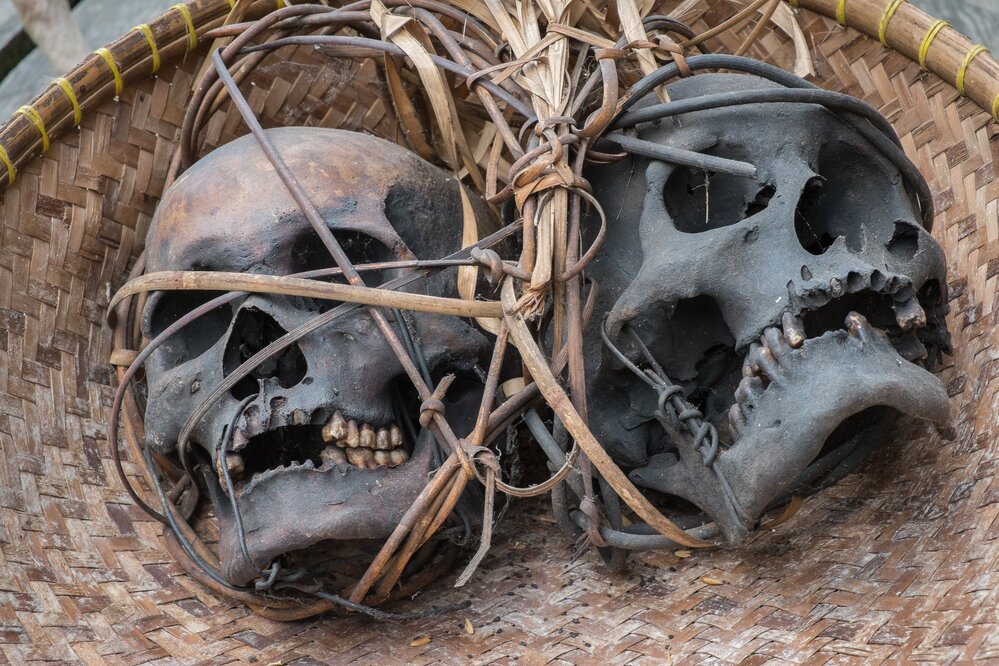“Savages, savages!”
To quote the infamous song from Disney’s Pocahontas (1995) as both the natives and settlers prepare for war.
The portrayals of indigenous and native cultures in entertainment media has long been one of controversy. From the fearsome Native American scalpers charging with chilling war cries against the band of cowboys in Westerns, to the silent blow dart-wielding tribesmen stalking the hero in adventure films — anyone associated with the “uncivilized” population are almost always featured in an unexplained and often explicitly violent light.
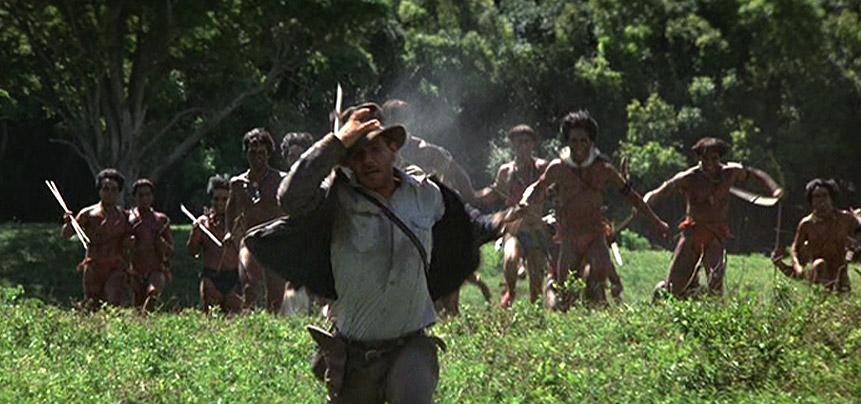
And one of the latest installments to this narrative does little to refute these cultural appropriations and their purely-for-shock-value imagery.
Borneo: A Jungle Nightmare
Borneo: A Jungle Nightmare is slated for a 2021 summer release on Steam, for PC and a diverse range of consoles including PlayStation 5, Xbox Series, PlayStation 4, Xbox One, and the Nintendo Switch. Pretty wide for something that’s being marketed as a point-and-click visual novel game.

While reasons of title changes are unknown, it was previously developed as Deodato’s Cannibal under Fantastico Studio. Deodato, as most horror film fans will recognise, presents this game as the fourth installment to his Cannibal film triology.
Ruggero Deodato is hailed as one of cinema’s most controversial directors, being behind grindhouse cult film Cannibal Holocaust (1980). So gratuitous and brutal, it prompted the Italian court to launch investigations into the actuality of the events depicted in the film and Deodato had his film license revoked for three years.
Personalities like Quentin Tarantino and Eli Roth cite him as influences on their own ultraviolent motifs, and Cannibal Holocaust is thought to be the precursor for the found footage genre of which The Blair Witch Project (1999) popularised, as well as catapulting the cannibal genre to international and long-lasting infamy.
Despite a notable cinematic presence, Deodato’s fixation on being morally reprehensible at the expense of indigenous and native representation needs to be addressed.
The latest controversy
In the trailer for Borneo: A Jungle Nightmare, little is revealed except for Deodato’ signature themes. Graphic images of disemboweled victims, psychotic characters, and unknown figures looming in the background of lush forests in between suggestive title cards promise a horrific experience.
Very noticeable however, are the markings on the heavily implied antagonists of the game. In two visual cards of the trailer, natives bearing the bunga terung mark of the Iban Dayak of Sarawak are clearly visible.
[CAUTION: GRAPHIC IMAGES BELOW]
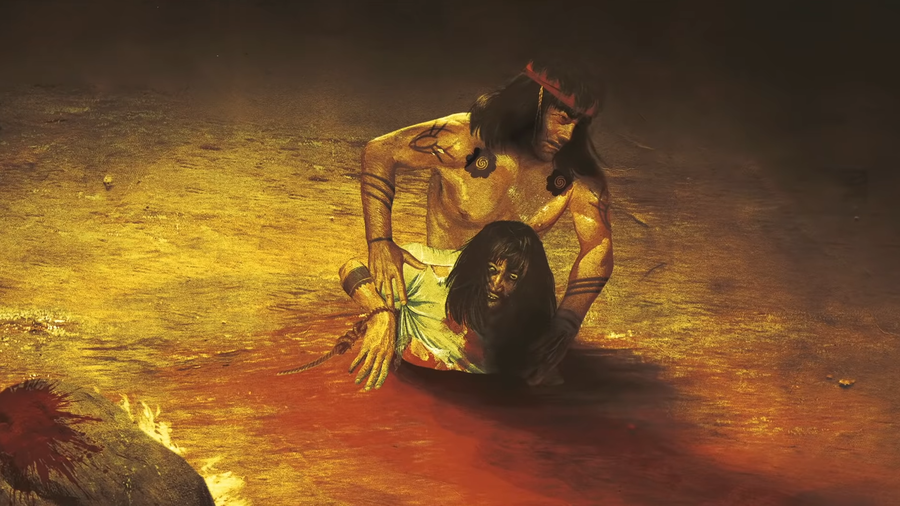
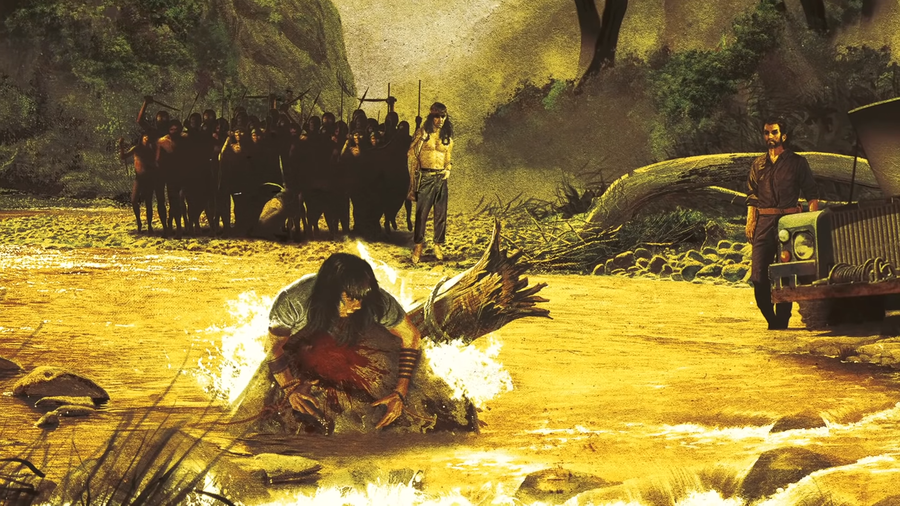
Outcry from Bornean-born people questioning the blatant usage of their heritage of course ensued.
In speaking to Iban-born victims of this misrepresentation, many shared disgust on seeing their existence being misused for shock value. Not only was Bornean heritage taken advantage of, a mish-mash of stereotypical cinematic portrayals of indigenous savagery were added, depicting Bornean natives with random body paint and unfamiliar weaponry.
Backlash was swift and IGN Southeast Asia soon added a disclaimer to the related posts, assuring that their publication was in no way endorsing the depictions of Bornean culture and that they have reached out to the game developers for further comment.
Using a culture for shock value, taking sacred symbols and ancient practices and completely subverting heritage and customs for something intended to just have some kind of foreign, demonising quality to what has been established as civilization is not new.
But in this era of recognising identity and representation, this game appears to strengthen nothing but outdated stigmatisation of historically marginalised communities to the table simply for horror value. And this perpetuation has to stop.
The history of the Iban Headhunters
Perhaps a point of fixation was on the traditional practices of Ibans being fearsome warriors that incorporated headhunting in their practices.
For the uninitiated, of course opinions that this practice is horrific on its own are indeed gruesome. But this is where much needed education, documenting, and accounts from the tribes themselves come into the picture.
In ancient times, headhunting was done for few reasons. The Iban Dayak saw headhunting as a ritualistic act to signify the end of a years-long mourning period, or to offer soul sacrifice to appease any misfortune and spirits for soil fertility. Most popularly, the Iban Dayak headhunted as a marker for territorial expansion across Borneo, as explained to us by an Iban descendant.
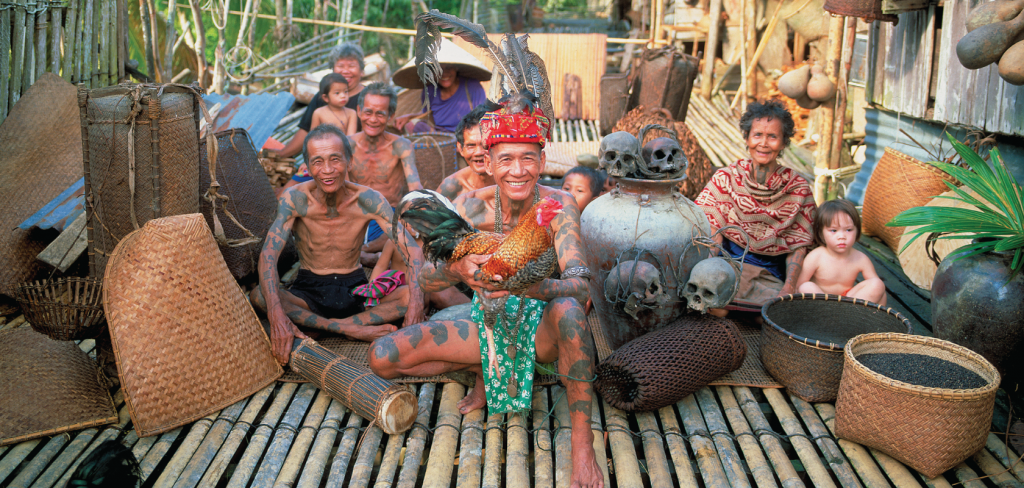
Inclusion of cannibalism however, are completely false. More so, the addition of cannibalism to the assumptions of what Iban Dayaks practice stem from superficial knowledge and tall tales. In doing some research, a persistent narrative of explorers discovering Borneo long enough to come across natives but never actually forming any kind of connection with them apart from tense formalities brought back over-the-top, self-serving, ego-boosting accounts of “having survived” such “grisly nature”. Please note that much of the content in this journal entry contain paraphrases of explorers from the 1800s, when the Western world sought to expand colonies and further their own influence on undiscovered Asian territory.
This entry by anthropologist William Schineder, who spent three years actually living with the Iban Dayak, refutes these claims properly, noting that previous vivid remarks are highly invalid.
In addition, the headhunting practice has been discontinued, in effect from laws enacted by Sarawakian colonisers, and the evolution of relations in generational progression.
The development of games like Borneo: A Jungle Nightmare can be seen as tone deaf—adding to the marginalisation of an already minority group of Asians. The long-running mockery of indigenous culture and heritage needs to stop if we are to indeed reach any form of civilised nature.
A response
In response to the backlash, Fantastico Studios and Ruggero Deodato released a statement to World of Buzz, claiming that research on Bornean and Iban cultures were done respectfully, and these images in the trailer were serving very important plot points in the game.
Our game exploits people’s prejudices — such as, for example, the false conception of the presence of cannibal tribes in Borneo — to show the rottenness that exists in the Western world, and this is very important to fully understand the artistic choices we have made.
“In fact, the main theme is precisely this one. The characters will go into the jungle of Borneo in search of cannibals, but they will only find the evil they bring with them.”
“No cannibals will be hunted, no culture will be belittled or stereotyped. There will be a deep message in the game, which we cannot explain now so as not to spoil the players’ experience.”
While such reasoning is palpable, there is no denying that representations of indigenous people and cultures have yet to go beyond elements of mysticism and unfamiliarity. It is hoped that more dialogue can be established between mainstream parties and the indigenous communities around the world to dispel harmful connotations of civilization and savagery.


